Twenty-five years after “The Sopranos” transformed TV, largely for the better, not much hasn’t been said or written about it. Even its creator David Chase looks tired of talking about his career-defining creation at the start of “Wise Guy: David Chase and The Sopranos,” although I may be misconstruing discomfort as fatigue.
Near the beginning of their dialogue, Chase tells documentarian Alex Gibney that he agreed to participate because he thought this project was about the show’s legacy. Once Chase realized “Wise Guy” was about him, he wasn’t so sure.
But Gibney has an affinity for disarming his subjects; besides, with interviewers he trusts, Chase isn’t an impenetrable wall. Unnerved as he might have been to step into a recreation of Dr. Melfi’s office, where their interview takes place, Chase gamely plays along as Gibney asks him to cite the parallels between his life and psyche, and those of his New Jersey mobsters.
Completists and superfans already know the basic sketches of “Sopranos” lore outlined in “Wise Guy,” including personal details like the fact that Livia Soprano, Nancy Marchand’s harridan of a mother who took joy in torturing her son Tony (James Gandolfini), was based on Chase’s mother. (Many of the show's writers had tortured relationships with their mothers, which explains a few things.) True illumination depends more on how the story is told than how much we know about the details, and this is where Gibney’s two-part documentary ignites.
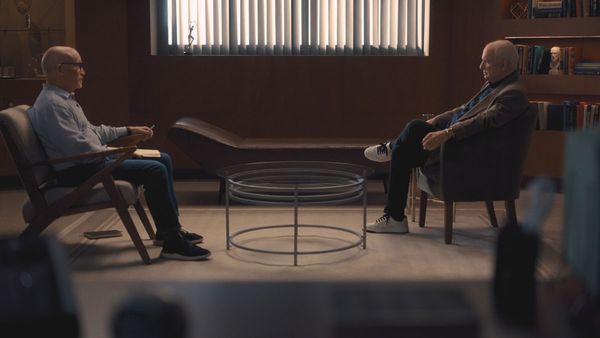 Alex Gibney and David Chase in "Wise Guy David Chase and The Sopranos" (HBO)“Wise Guy” is less biography than investigation, culturally and psychologically analyzing how Chase’s creation met America on the verge of shifting away from the white picket fence dream. But the most fascinating scenes are the ones where Gibney uses his interviewing skills to analyze Chase, or more accurately, has Chase analyze himself.
Alex Gibney and David Chase in "Wise Guy David Chase and The Sopranos" (HBO)“Wise Guy” is less biography than investigation, culturally and psychologically analyzing how Chase’s creation met America on the verge of shifting away from the white picket fence dream. But the most fascinating scenes are the ones where Gibney uses his interviewing skills to analyze Chase, or more accurately, has Chase analyze himself.
Gibney edits Chase’s overview of his childhood as a tumble through memory, layering his spoken details on top of each other as home movie images flashing around highway travel sequences. The sensation is not unlike that of a therapist’s initial notetaking during an intake session, glossing over the quotidian and underlining relevant observations as a reminder to circle back and dig in.
Once we enter his career chapters, the pacing slows considerably. And it is here where Chase hits us with the notion that “The Sopranos” wasn’t only luck, it was in some ways a derailment of his original career aspirations.
“I came here to Hollywood to make movies, and I got sidetracked into TV, into becoming a writer, basically because of what I would say were my own weaknesses,” he says. “One, I became scared to direct, and also, there was money involved.”
The central pitch of “Wise Guy” is the real winner, which is that Chase’s story is “The Sopranos,” and vice versa, as well as the story of HBO and the birth of prestige television. More than simply being an extension of Chase’s life experiences, “The Sopranos” spoke to the common nagging sensation of living at a time when America’s best days were behind it, a feeling personified by a mob boss suffering panic attacks.
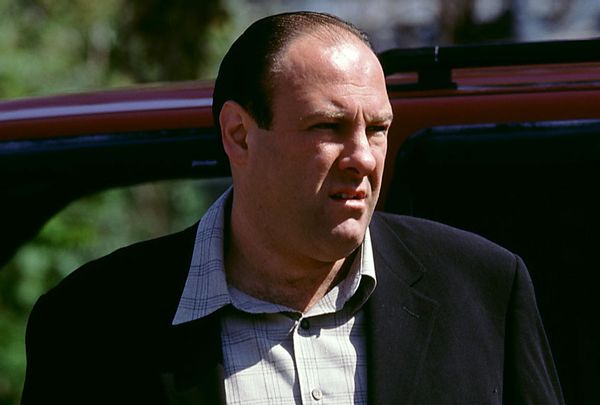 Series Star James Gandolfini in "The Sopranos," HBO's Hit Series About A Modern-Day Mob Boss Caught Between Responsibilities To His Family And His 'Family' (Getty Images)
Series Star James Gandolfini in "The Sopranos," HBO's Hit Series About A Modern-Day Mob Boss Caught Between Responsibilities To His Family And His 'Family' (Getty Images)
The most fascinating scenes are the ones where Gibney uses his interviewing skills to analyze Chase, or more accurately, has Chase analyze himself.
Tony Soprano is a walking, talking three-way knife fight between the id, the ego, and the superego, making “The Sopranos” the most Freudian exercise on TV. Viewers may not have recognized that at the time. Chase describes the audience as breaking down between two groups, with one half being hooked on cinematic serialized drama and the “less yakkin’, more whackin’” crowd hooked on its violence.
Gibney caters to the former by having Chase walk us through the many dream sequences interwoven into each episode along with anatomically breaking down the show’s most unforgettable scenes. Yes, that includes the final cut to black; no, Chase does not reveal what it's supposed to mean beyond pointing to a scene in the third season that informed his thinking.
As for the viewers hooked on the drama’s violence or who saw Tony as a hero, Chase says he wanted to remind the audience that the men they were rooting for are despicable.
All these years later we might see how Chase’s intentions failed to find purchase in a culture that instead lionized the anti-hero, or that future show creators viewed its sex and violence as a green light to exploit them as titillation. But Chase and his actors are steadfast in their opinion that none of the violence was for prurient or thoughtlessly employed.
We need your help to stay independent
Lorraine Bracco’s take on that front holds extra weight, given that her character Dr. Melfi’s violent rape was among the first to be depicted graphically onscreen. (Be warned that “Wise Guy” shows that scene pretty much in its entirety.) Bracco remembers angrily demanding that Chase explain why he violated her, saying that she refused to read to the end of the script.
Once she did, she says felt differently.
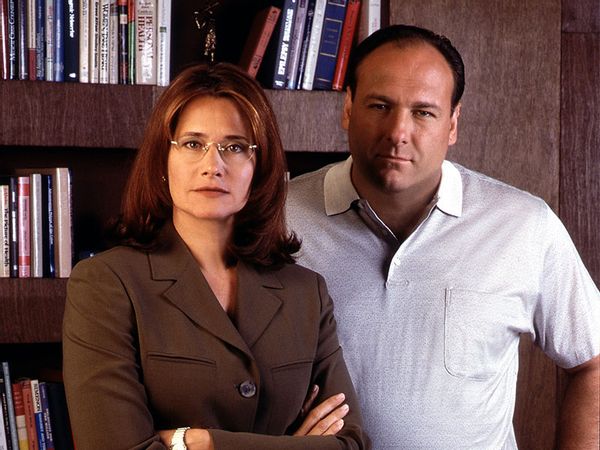 Lorraine Bracco And James Gandolfini of "The Sopranos" (Getty Images)From the perspective of the post-“Game of Thrones” era many will emphatically disagree with her empathetic defense, and I don’t blame them. “The Sopranos” pushed past many boundaries and unspoken narrative restrictions, inspiring other showrunners to think in more cinematic terms while opening the floodgates for dramatized brutality.
Lorraine Bracco And James Gandolfini of "The Sopranos" (Getty Images)From the perspective of the post-“Game of Thrones” era many will emphatically disagree with her empathetic defense, and I don’t blame them. “The Sopranos” pushed past many boundaries and unspoken narrative restrictions, inspiring other showrunners to think in more cinematic terms while opening the floodgates for dramatized brutality.
Chase’s story is “The Sopranos,” and vice versa, as well as the story of HBO and the birth of prestige television.
To this Edie Falco has a very Carmela Soprano response. “The show was always shocking somebody about something,” she says, nonplussed. “The whole point is you want to surprise people and give them feelings that maybe are uncomfortable and have them learn to deal with them. That, my friend, is life. You’re not going to be given trigger warnings when terrible things happen.”
“Wise Guy” is not one of those things. Instead, it’s the type of examination that reminds the audience of why the show was great by playing with its pop culture psychoanalytical themes and delivering the rosy remembrances fans want.
In doing so it reminds the audience of how much has changed in two and a half decades due in part to what Chase achieved with this show. It’s almost funny to think there was a time when HBO was TV’s bargain basement, but that’s how Michael Imperioli remembers he felt when he went in to read for the part of Christopher Moltisanti.
Falco, who had by then worked on “Oz,” was shocked at hearing she got the part of Carmela a day after she read for it and recalls thinking that meant the show was one of those “fly by night” productions.
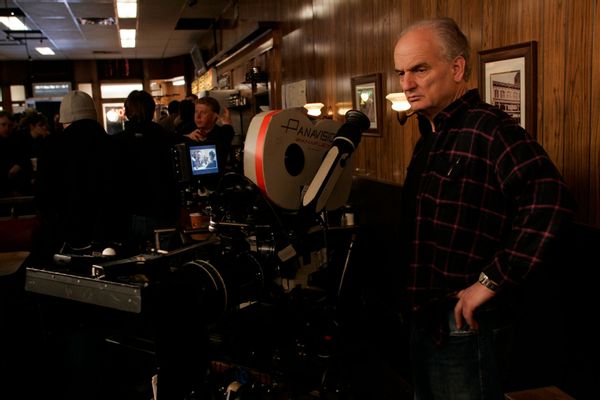 David Chase in "Wise Guy David Chase and The Sopranos" (HBO)
David Chase in "Wise Guy David Chase and The Sopranos" (HBO)
Chase recalled how many people auditioned for each major role and we see many of those tryouts, some involving actors who went on to appear in smaller parts in the series. Along with their massive entertainment value, these segments prove how painstaking it was for Chase to ensure he got the ensemble formula just so, and it’s easy to see how one wrong selection could have diminished everything.
Of course, the genius stroke was landing James Gandolfini to play Tony Soprano. “Jimmy had magic,” recalls Chris Albrecht, HBO’s former chairman and CEO. Nevertheless, it took the network 10 months to greenlight “The Sopranos” to series.
Gandolfini died in 2013, but Gibney centralizes his defining presence through outtakes and clips from long-form interviews, including excerpts from his appearance on “Inside the Actor’s Studio.” Some of the unused footage shows the fun-loving, kind side of the star most people didn’t see. Other excerpts show the darkness that took hold of him during the production, contextualized by Chase and other castmates weighing in.
Want a daily wrap-up of all the news and commentary Salon has to offer? Subscribe to our morning newsletter, Crash Course.
Views of Marchand and the late Tony Sirico, aka Paulie Walnuts, are similarly humanizing, especially when executive producer and writer Terence Winter recalls Sirico’s stubborn refusal to let anybody mess up his hair. (“I think my character acts like me, but don’t tell nobody!” Sirico says in an archival clip.)
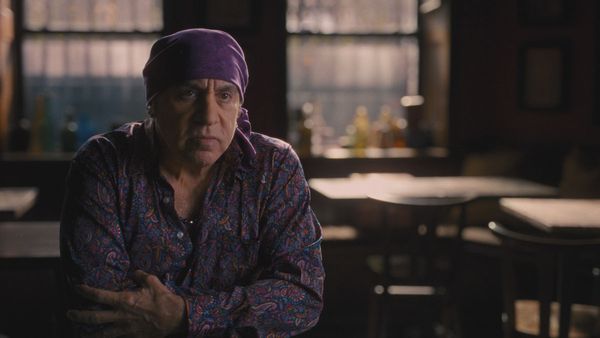 Steven Van Zandt in "Wise Guy David Chase and The Sopranos" (HBO)The participant roster for “Wise Guy” is more noteworthy for who is present than who isn’t as in Jamie-Lynn Sigler and Robert Iler, who played Tony and Carmela’s kids Meadow and A.J. Joining Bracco, Falco and Imperioli are Drea de Matteo and Steven Van Zandt, two of Chase’s favorites who shared what may be the series most gutting scene.
Steven Van Zandt in "Wise Guy David Chase and The Sopranos" (HBO)The participant roster for “Wise Guy” is more noteworthy for who is present than who isn’t as in Jamie-Lynn Sigler and Robert Iler, who played Tony and Carmela’s kids Meadow and A.J. Joining Bracco, Falco and Imperioli are Drea de Matteo and Steven Van Zandt, two of Chase’s favorites who shared what may be the series most gutting scene.
Joining their insights with Albrecht, former president of HBO Entertainment Carolyn Strauss, director of photography Alik Sakharov and writer and producer Robin Green leads us to understand what an undertaking it was to ensure every piece fit together perfectly.
During its second segment Gibney points out that therapy should, theoretically, make you a better person. Chase responds that, instead, it made Tony a better mobster. Although interviews and montages of audition tapes what an arduous process of attaining perfection can be, it’s Gibney’s drive through Chase’s psyche that makes “Wise Guy” worth sitting with.
"Wise Guy: David Chase and The Sopranos" premieres at 8 p.m. Saturday, Sept. 7 on HBO and streams on Max.


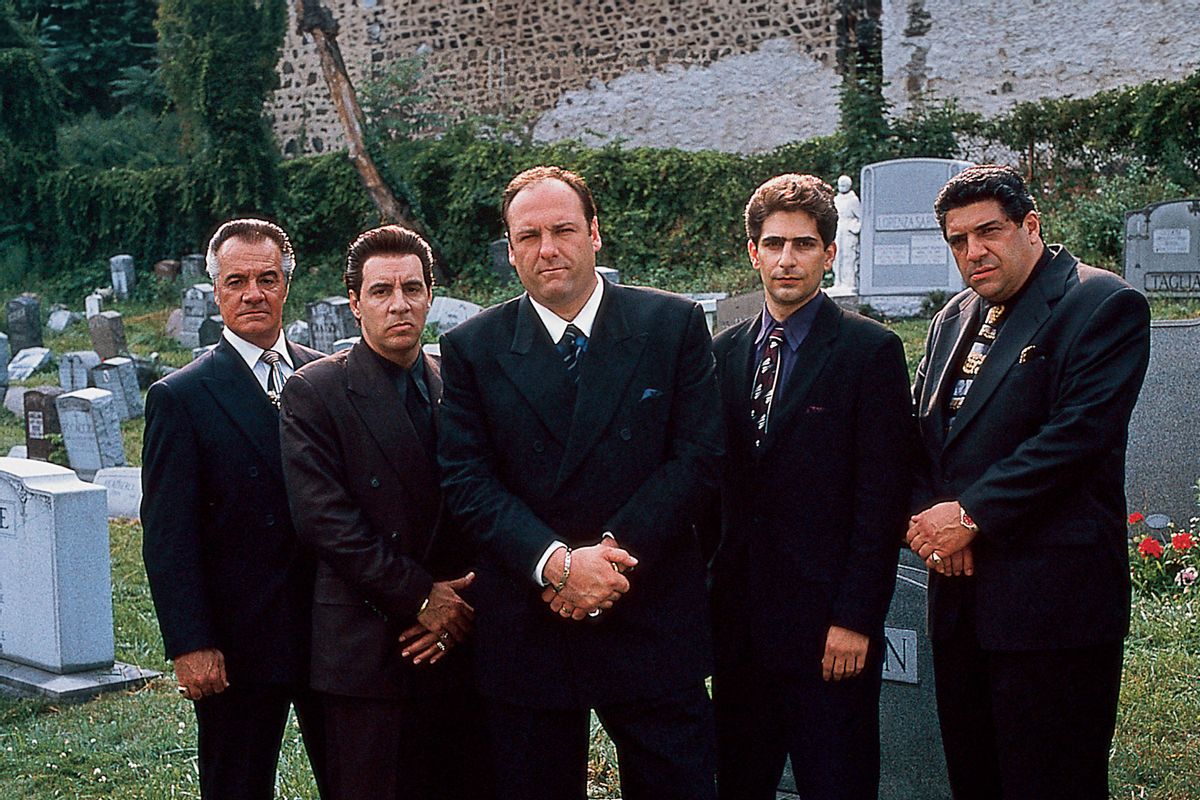
Shares